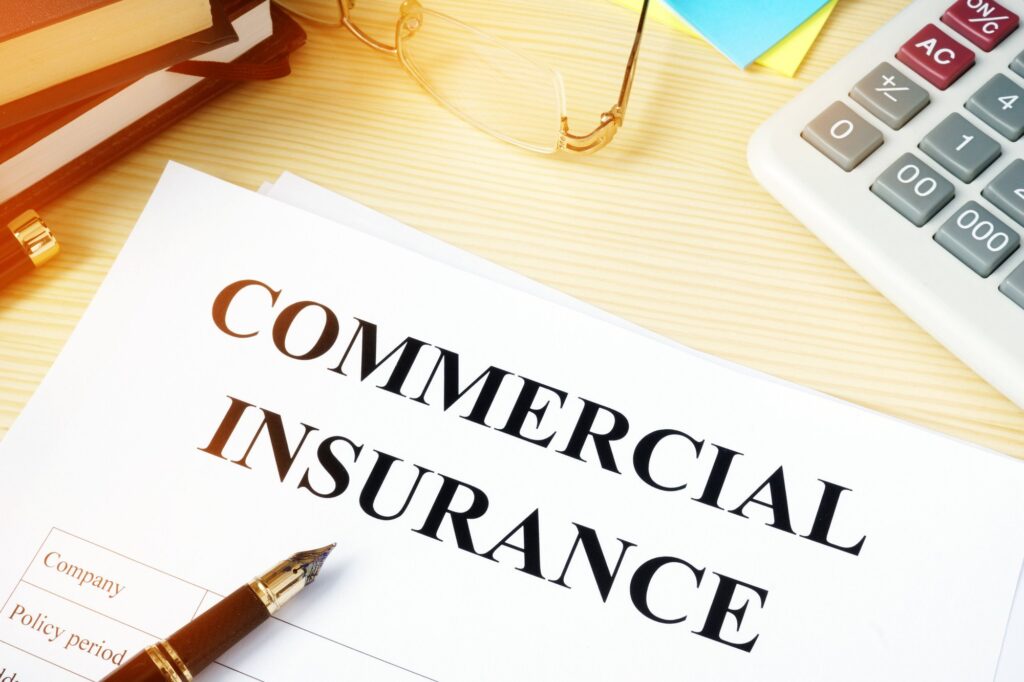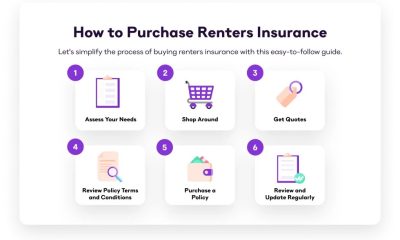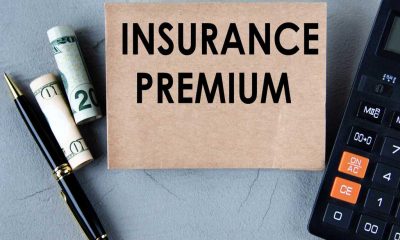Insurance
What Is Commercial Insurance And How It Works

What Is Commercial Insurance?
Commercial insurance, often known as business insurance, protects firms against losses caused by unforeseen events during normal business operations, such as lawsuits, natural catastrophes, or accidents. Businesses can obtain a variety of commercial insurance policies, including covering for property damage, legal responsibility, and employee-related hazards.
Companies assess their commercial insurance requirements based on prospective hazards, which differ depending on the type of business and its surroundings. Learn about the many types of company insurance and what they offer.
How Commercial Insurance Works
Small business owners must carefully study and assess their risks because they may face personal financial consequences in the event of a loss. Commercial insurance protects business owners against potential losses caused by unexpected incidents that they cannot afford to cover on their own. This enables enterprises to operate when it would otherwise be dangerous to do so.
If you need business insurance, contact a reliable and registered insurance broker. You can obtain a list of licensed agents in your state from your state’s department of insurance or the National Association of Insurance Commissioners.
Types of Commercial Insurance
Workers’ compensation insurance, for example, is required by federal requirements. Furthermore, some states may mandate specific types of enterprises to have additional coverage categories.1 In most cases, it is prudent for businesses to protect themselves by obtaining coverages that are not legally needed. Here are seven popular types of company insurance:
- Commercial General Liability Insurance
Commercial general liability insurance is a type of policy that covers all enterprises. It is called comprehensive insurance, although it does not cover all dangers. General liability insurance covers bodily injury, property damage, medical expenditures, libel and slander, legal defense, and settlement bonds or judgments.
- Professional Liability Insurance
Professional liability insurance (PLI) is developed specifically for firms that provide services, as opposed to general liability insurance, which is applicable to all organizations. The coverage is for losses incurred by the service provided. It covers expenses attributable to malpractice, negligence, or errors.
- Commercial Property Insurance
Property insurance is intended for firms that have large physical assets, such as equipment, signage, inventory, and furniture. It protects the firm from losses caused by fire, storm, or theft. Property insurance can provide coverage for items such as merchandise, computers, furniture, and signage.
- Home-Based Businesses
If you run a home-based business, you will most certainly require supplementary coverage for equipment and inventory. Standard homeowner plans often do not cover home-based enterprises in the same way that commercial property insurance does. A home-based business insurance rider can be added to a homeowner’s policy to provide a limited amount of coverage for equipment and liabilities.
- Product Liability Insurance
Product liability insurance is intended for firms that deal with products, such as manufacturers, wholesale distributors, and retailers. Product liability insurance protects a company from the costs of product-related damages, such as a defective product that causes bodily injury or harm. Without product liability insurance, a company may be forced to pay for costly lawsuits.
- Vehicle Insurance
Vehicles used for business should be insured. Whether you have vans, buses, tractor trailers, or passenger cars, you will need insurance to cover damage to the vehicles or goods, as well as injury to others. Each state has a minimum level of compulsory insurance. Several factors can influence the cost of automobile insurance, including the driver’s driving record and the condition of the vehicle.
- Business Interruption Insurance
Business interruption (or continuation) policies are a type of insurance that is particularly useful for businesses with physical locations, such as retail stores or manufacturing operations.
Business interruption insurance covers a company for lost revenue due to occurrences that disturb the normal course of business. It is usually included as a rider to a property insurance policy or as part of a company owner’s policy. Policies may also include a civil authority provision outlining compensation in the case of a government action that closes the business.
- How Much Does Commercial Insurance Cost?
The cost of a commercial insurance policy is determined by a variety of criteria related to your business and the insurance coverage. Progressive states that the median monthly cost of a business owner’s coverage is $70.2. The Hartford reports that the typical monthly cost of its commercial insurance is $55.3.
- What Affects How Much Business Insurance Costs?
Several factors can influence the cost of a business insurance policy, including the number of employees, the location of the business, and the level of coverage desired. Generally, the more staff and coverage you require, the more expensive your policy will be. Prices vary by area, based on the related risks.
- How Do You Get Commercial Insurance?
You can obtain commercial insurance from an insurance provider that offers the type of policy you require. You can engage with an insurance agent at an insurance company to get an estimate and walk you through your selections and application process. You may frequently obtain a coverage online or by calling the insurance company.
The Bottom Line
Commercial insurance can be an effective instrument for protecting a corporation from potential losses caused by unexpected catastrophes. When looking for business insurance, consider numerous coverage options and ensure that you completely grasp the conditions of each. Consider speaking with a professional financial advisor who can go over the various coverage options that may be ideal for your company.










